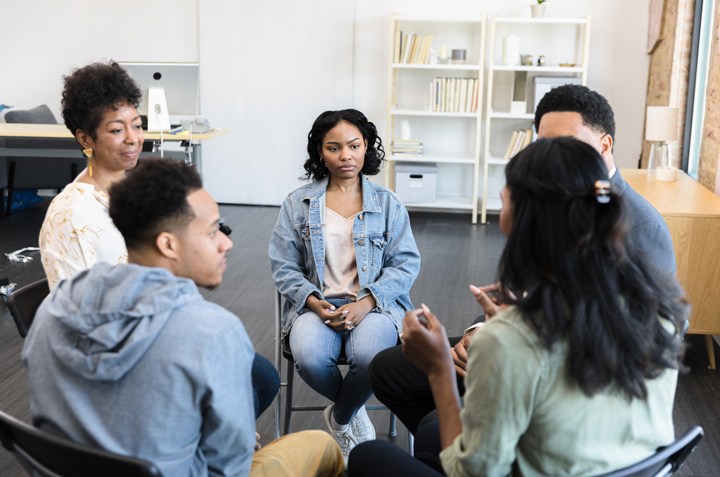
Improving Mental Health in the Black Community
In the Black community, as we learn more about anxiety and depression, the mental health stigma weakens. But there is still work to be done. Many Black people grappling with mental health face many added struggles: shame, poverty, unemployment, incarceration, and lack of access to affordable health care.
So, how can we help improve mental health in our community?
Acceptance
The first step is reducing stigma. Because people are often judged for having anxiety and/or depression, some would rather self-soothe through substance abuse, self-harm, and isolation, which only leads to greater health issues down the road. To raise awareness and provide a safe space for healing, we need to validate the emotions of our fellow brothers and sisters. By doing so, we let them know that we see, understand, and support them.
Positive Lifestyle Changes
Mental Health America conducted a study that found a direct correlation between mental health and nutrition and exercise. The brain closely interacts with the gut, often called “the second brain.” Because of that connection, the foods people physically put into their bodies could affect their mental well-being. Overall health was improved by reducing sugary, fried, and processed foods and increasing nutritionally dense foods, such as whole grains, lean meats, fish, fruits, and vegetables.
In addition, thirty minutes of daily exercise — gardening, jogging, Zumba, yoga or even walking the dog — decreases anxiety and depression while enhancing concentration and mental capacity.
These positive lifestyle modifications can be difficult to achieve and maintain in minority communities due to socioeconomic disadvantages, such as low income. However, they are feasible with proper resources, information, and support from food banks and nonprofits.
Professional Support
Black communities are more likely to face chronic mental health and substance abuse issues without awareness, acknowledgment, or treatment. The National Alliance on Mental Illness found that only one in three Black adults received mental health treatment after reporting having a mental illness.
Crisis intervention and conversations with trusted individuals are effective in treating mental health struggles. Hiring a mental health professional also can make a world of difference. Online services such as Psychology Today, BetterHelp, and TalkSpace can help people find mental health professionals who offered guidance, treatment, and medication if needed.
Community Spaces
We need to create safe, transparent spaces to learn about the intersection of physical and mental wellness. Last year, as we grappled with COVID-19, mental wellness, and more, our community came together virtually for a livestreamed town hall event, hosted by the “We Can Do This” campaign. Black leaders spoke about vaccine education and access, shared their lived experiences and offered best practices to help Black families.
As we continue to recover from COVID-19, we turn to mental health help groups, such as Safe Place and Black Men Heal, for equitable programs for minority communities.
Remember to safely celebrate that Mother’s Day by being vaccinated and encouraging your loved ones to do so as well. Even as the pandemic subdues, there was is vaccine hesitation, so it remains important to practice safety and preventative measures, especially in crowded spaces and around at-risk individuals.
For more information on holistic and mental health support, visit:
- The Loveland Foundation
- Black Emotional and Mental Health Collective (BEAM)
- The National Queer and Trans Therapist of Color Network (NQTTCN)
- Therapy for Black Girls
- Therapy for Black Men
If you know anyone who is contemplating suicide, dial 988 to reach the National Suicide and Crisis Prevention Hotline, which is available to help 24 hours a day, seven days a week.
Was this article helpful?